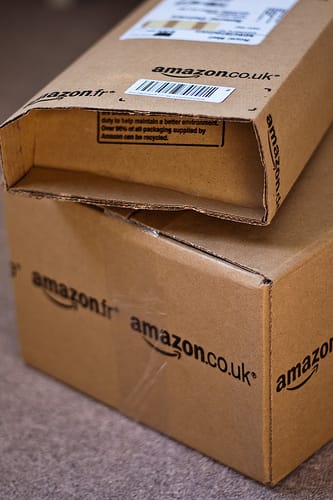
(Photo credit: xrrr on Flickr)
Amazon’s entire offering really boils down to two things.
The first is to facilitate a person in a warehouse somewhere picking a book off a shelf and sending it to you. Every other part of the service and online experience is essentially about making that happen ideally as swiftly, effortlessly and enjoyably as possible.
The second is to recommend books to you that you are either considering buying or didn’t even know existed. That part is what all the collaborative filtering (people who bought this also bought that), reviews and rating mechanisms are for. Usually the second point leads to the first – you make a purchase and they send it to you.
Key to this entire service experience is time. It’s quick to find things, quick to find alternatives and quick to get the book once you buy it. If you want to take longer to meander through a bookstore that is one of the (few) advantages bricks and mortar bookstores have. Time is important there too, but in the opposite way, hence the preponderance of cafés in bookstores or café/bookstores. If you feel hustled and harried by the staff to make a purchase and get out, that’s poor service.
If it takes ages for something to arrive from Amazon a large part of the point of Amazon is lost. By ages, I mean more than about a week. That’s the Amazon equivalent of going into a physical bookstore and asking for a book only to hear the response, “We don’t have it in stock, but we can order it for you – it will be here in about four to six weeks”. (Incidentally, does any bookstore worker not think at that moment, “They’re thinking Amazon.com right now”?). Delivery time for Amazon makes almost the entire difference – it’s one of the key advantages along with the enormous inventory that is the pay off to the disadvantage of not being able to browse the physical books.
Amazon is a classic case of a service that is deeply susceptible to the level of service its partners can provide. The Royal Mail, once the envy of the world’s postal services, has gone from bad to worse over the past couple of decades and today the Guardian reports that they have just lost a £25m contract with Amazon because of the current strike. They already lost a smaller £8m contract in the last strikes.
So much is fairly obvious albeit sad. What was particularly interesting from a service design perspective is that the Home Delivery Network (a private, rival service to the Royal Mail) have said, “We are seeing a number of our customers preparing to start marketing their deliveries as free of Royal Mail risk”. When your service is so bad that avoiding using it becomes a selling point for another service or product, you know you have big problems.

